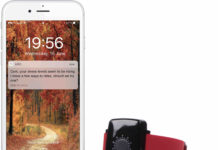As part of an initiative to make Canada one of the world’s leaders in research, the government of Canada has established the Canada Research Chair Program.
In doing so, they have allowed 2000 chairs, that is, 2000 research grants to those who have demonstrated that they are an outstanding researcher or exceptional emerging researcher.
The grants are divided into two tiers. Tier one grants allots the researcher $500,000 over five years and tier two allots $1.4 million over seven years.
This year, 14 researchers at the University of Waterloo have been named Canada Research Chairs from across a variety of disciplines. Below are just a few of these researchers and their innovative proposals.
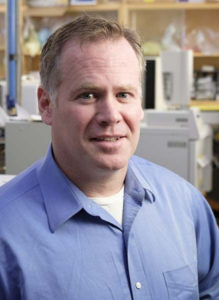
Dr. Ken Stark is a global leader in fatty acid and lipid analysis. He coined the term “nutritional lipidomics,” which examines large scale metabolic pathways and the impact of lipids in biological systems. He hopes to “develop and apply innovative lipidomic methods, explore the use of complex fatty acyl lipid species as blood biomarkers of diet and metabolic phenotyping, and enhance the understanding of metabolic adaptations that occur during pregnancy to meet fetal lipid demands.”
Dr. Stark said that working at the university has helped facilitate collaboration with industry partners that he has not anticipated in his field.
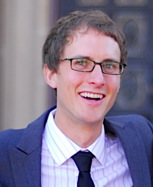
Dr. Stephen Smith is a professor in the engineering faculty who hopes to allow robots to operate in human-centric environments.
Areas he hopes to include this technology in includes agriculture, autonomous driving, and flexible manufacturing.
Dr. Smith has been researching automation and robotics for over a decade.
“In the last few years we’re seeing a huge shift in the way these systems are used,” he said.
He has shifted the focus of research to trying to program robots to operate in unpredictable environments safely and efficiently.
On working at UW, Smith has stated that the university has been supportive of his research, and that it sports world-class infrastructure.
“E7 will provide a state-of-the-art robotics test facility in which we can implement and experiment with our algorithms.”

Being in the faculty of environment, Dr. Christine Dow hopes to determine controls on ice sheet and glacier dynamics. She has been researching water flow under glaciers for over ten years and hopes to use the research she gathered to produce more accurate estimations of future sea-level rise rates.
“The CRC grant money is allowing me to expand this research to new areas in the Canadian north and the Antarctic, and also synthesize the research outputs to address global issues of ice mass change in a warming climate,” Dow said.
Dr. Dow found that the university environment allowed interdisciplinary research that inspired her future research goals.
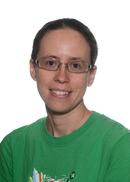
The goal of Dr. Yeats’ research is to “understand the combinatorial structures underlying aspects of perturbative quantum field theory.” Ultimately, she hopes to understand quantum field theory as a whole.
Dr. Yeats finds that there is an exceptional concentration of people doing related work between the university and the Perimeter Institute. She also commented on the proficiency of students and the resources UW has allowed her to support student researchers.
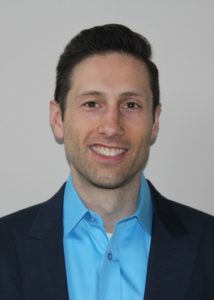
As a researcher in the School of Accounting, Dr. Andrew Bauer’s research is focused on taxation and interactions between firms and shareholders. He hopes to better understand why firms use certain tax strategies and how firm’s interactions with shareholders shape these strategies.
The goals of his research are to determine if “tax enforcement can improve shareholder welfare” and “how potential shareholders assess tax risk, tax uncertainty, and a company’s efforts to manage those risks.”
Dr. Bauer is a PhD graduate from UW and hopes the university will continue to support him and help him develop an international reputation in his field.
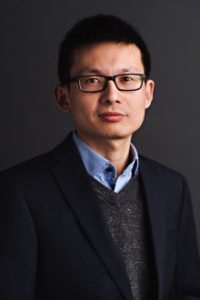
Dr. Jun Liu, a researcher in the faculty of mathematics, hopes to use his CRC grant to design hybrid control algorithms for cyber-physical systems to meet their safety and performance requirements. These types of systems include self-driving cars, human-like robots, and unmanned aerial vehicles.
He hopes to use control theory from applied mathematics and formal methods from computer science to achieve his goal.
Dr. Liu is also a PhD graduate from the University of Waterloo, and was excited to return to the department of applied mathematics after his postdoctoral and faculty positions previous to his current position.
Liu said, “With the stimulating research environment on campus and the excellent students Waterloo tends to attract, I very much look forward to the exciting research we will be conducting with the support of this CRC grant.”
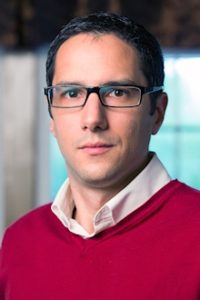
Dr. Ferro’s area of research focuses on youth mental health. His study, MY LIFE, will investigate youth multimorbidity, which is the co-occurrence of physical and mental disorders.
Ferro hopes to determine why children with chronic physical conditions such as asthma, diabetes, or epilepsy are more at risk to mental health disorders.
“MY LIFE is poised to address if there are shared psychosocial or biological mechanisms that predispose children with physical conditions to develop mental disorders,” Ferro states. He also adds that by identifying these mechanisms, he can develop ways that will improve the lives of those affected.
The researcher has expressed that he was impressed with the quality of the faculty and staff at the University of Waterloo and that he was “struck by the collegiality of the faculty and strong interest students, at all levels, have in engaging in the research process.”



























